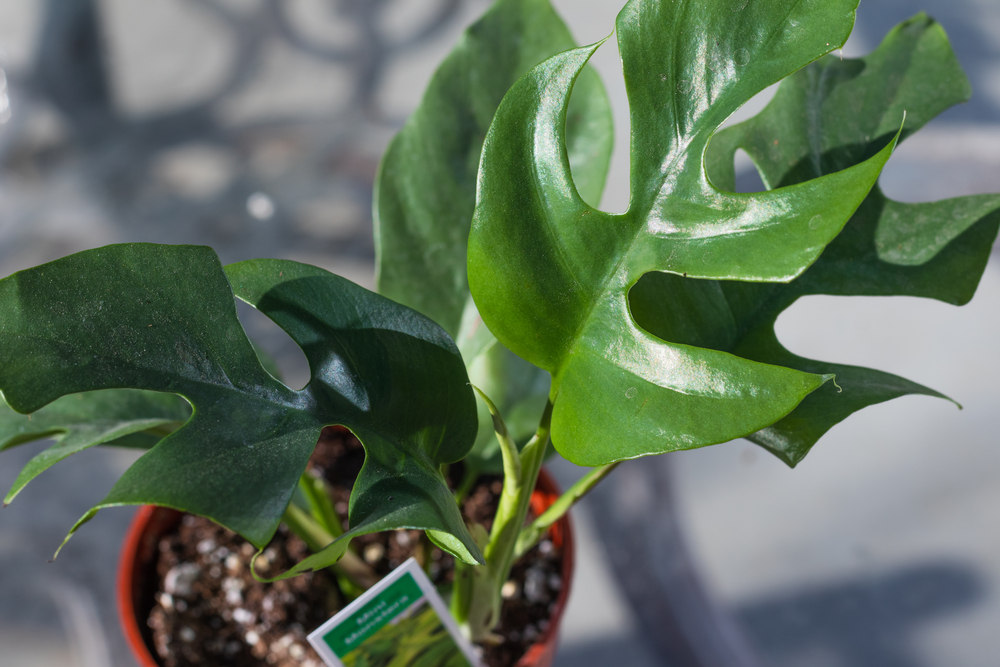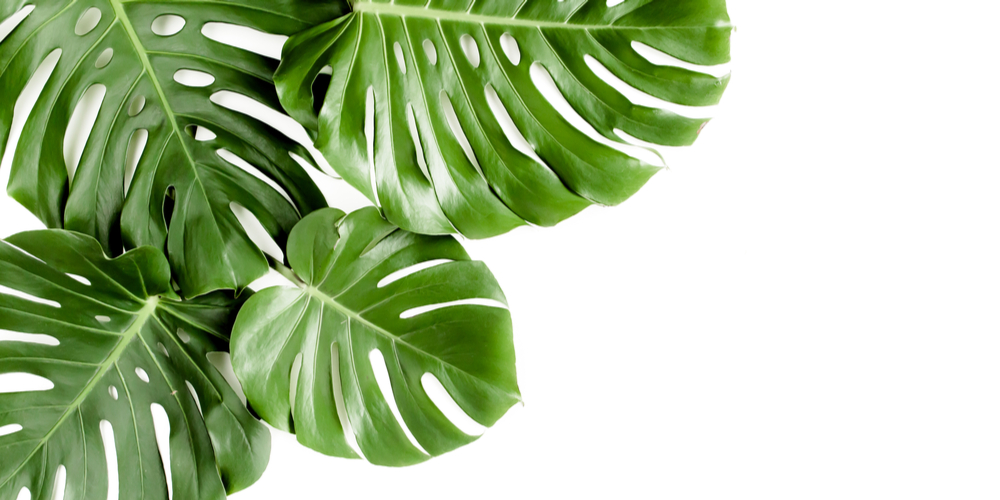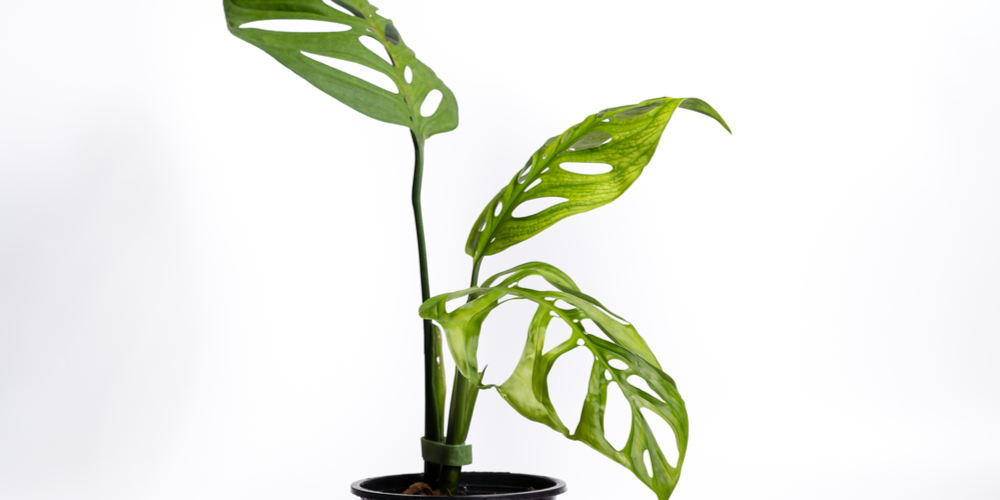The composition of your monstera plant’s soil is critical to its successful growth. Factors like water and sunlight will only do so much if your plant’s roots cannot absorb the food and water it needs. Let’s look at the best Monstera soil type. Consider the following advice to make and keep your monstera happy from head to toe.
Most Important Soil Features

Monstera plants are not particularly fussy to care for, but mimicking their natural growth conditions will help them grow strong and healthy.
Well-drained
Monstera plants do best with moist but not soggy soil. Make sure your pot has drainage holes and that your potting soil mix, whether premade or homemade, contains ingredients like perlite to help aerate the soil while still retaining moisture.
Nutrient-Rich
Monstera will appreciate natural soil ingredients like fine sand, orchid barks, worm castings, bat guano, or composted leaves. Your plant needs to “eat” as if it was in a tropical environment rich in vitamins and minerals.
Slightly Acidic
Though the exact pH range can be hard to pinpoint, monstera plants prefer slightly acidic soil, around 5.5-6.8 (a pH of 7 is neutral, and lower levels are more acidic). It’s easiest to test soil pH with a kit.
Storebought potting mixes are typically slightly acidic, but you can always mix more acidic ingredients like peat moss or coconut coir into the soil to lower the pH to your monstera’s liking.
Monstera Soil Type
It is a surprisingly complex process to determine the best soil composition for plants, and the monstera is no exception. Buying a premade potting mix simplifies matters, granting you understand the various options.
For one, potting soil and potting mix are not the same. Mixes are for indoor plants and allow for better drainage than potting soil. There are wide varieties of specialty potting mixes. Here are some of the best choices for monstera.
Orchid Mix
Orchid potting mixes work well for monstera because they’re light and aerated. Orchid mix is not usually a typical soil but rather bark or wood chips, which allows the roots to breathe with better access to the air.
Regular Potting Mix
Regular potting mix is any mix not specifically tailored to one kind of plant. Monstera can thrive under these more generic conditions. You might prefer one of these potting mixes if you’d like to add in fertilizer, for instance.
Cactus Mix
Monstera like cactus mixes because they drain water efficiently. Your monstera plant requires more moisture than a cactus, but you can always add moisture-retaining ingredients like peat moss to better meet a monstera’s needs.
How To Make Your Own Monstera Potting Mix
If you understand what a monstera needs, you can make its soil yourself. Knowing that monstera like moist but not soggy roots, your homemade mix might include peat (to hold moisture) and perlite (to drain water away).
Compost and organic matter will provide nutrients for your monstera, but be careful to test the pH of your soil and adjust accordingly to keep it slightly acidic. You can add a wetting agent if your homemade mix doesn’t seem to hold water well.
The difficulty in making monstera soil from scratch is the precise ratios of these components. It will require some trial and error and depend on your plant’s growth stage and your watering habits. As a starting point, you might try 20% nutrients, 50% well-draining ingredients (perlite, coconut coir, etc.), and 30% water-retaining ingredients (perlite, pumice, orchid barks, etc.).
Monstera Soil Type: Wrap Up
The ideal soil for monstera plants is well-drained, nutrient-rich, and slightly acidic. If you understand your plant’s specific needs, it is possible to create your own potting mix to help your plant thrive. You should also consider providing your plant with a moss pole support so that it has something to grow up.

